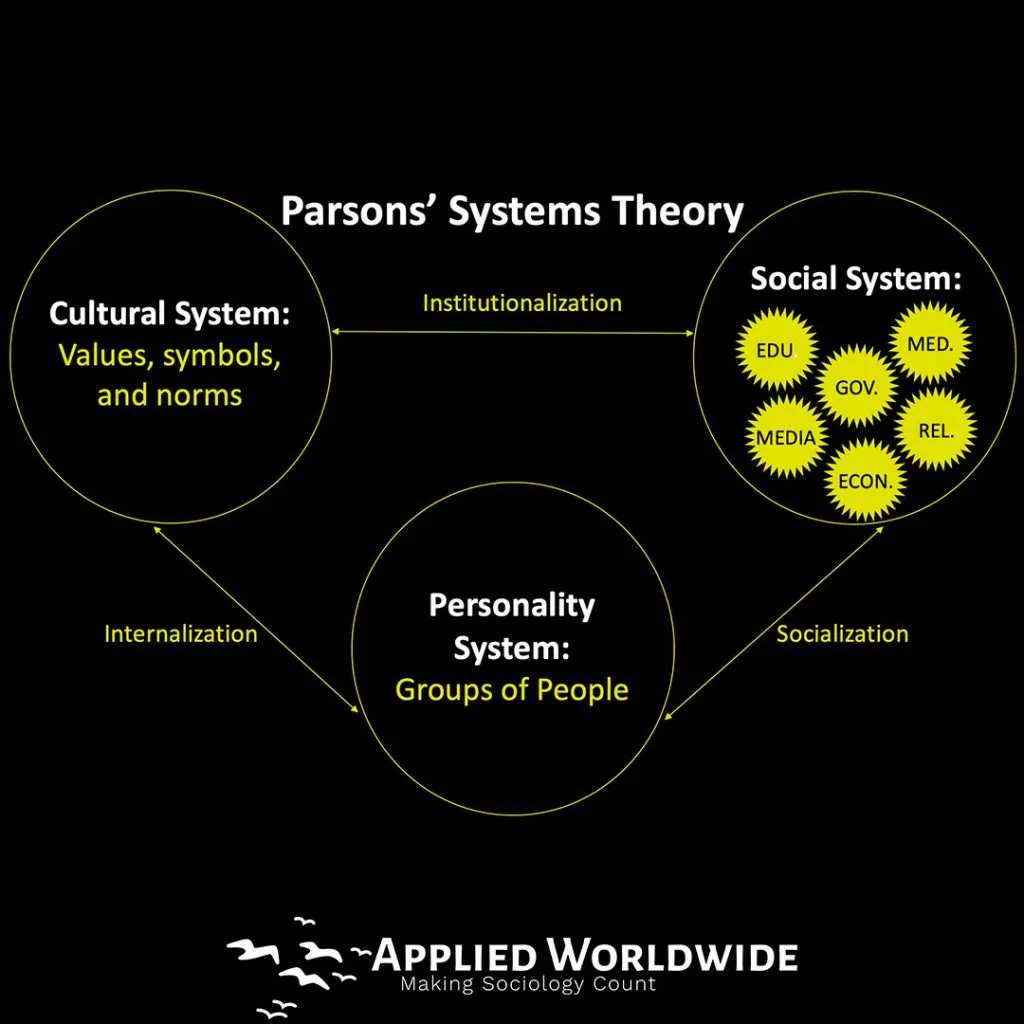Can sociological theory help us understand and solve the social problem of insecurity in Nigeria?
In addressing the the issue of insecurity in Nigeria, sociologically, it is important for it to be reviewed with a critical lens. Hence the reason behind writing this article is to use a sociological analysis to help unveil and comprehend the root causes of insecurity in Nigeria. I will examine the concept of insecurity and use theoretical approaches in my analysis, including classical (Structural-Functionalist) and contemporary (Elite) sociological theories.
Social Problems and Insecurity in Nigeria
African states have been facing perilous social upheaval and constant commotion that affects their security and peaceful coexistence since independence. Nigeria as the most populous black nation has been battling with various forms of social problems which have manifested in perennial insurgency, banditry, an agricultural crisis, ethno-religious riots, inter/intra tribal wars, and communal clashes to mention but a few. These challenges are directly or indirectly believed to have been connected with the country’s historical context, governance and other external structural forces.
Many of these problems to not happen to such extremes in the developed countries. For example, people like Ahmed Ladan-Baki, 2014, believed that in developed nations, the nature of insecurity is purely violent conflicts and it is centered on natural and climatic changes such as earthquakes and tropical storms.
Security in Nigeria
The security situation in Nigeria is worsening. People are dying in scores daily. Vicious attacks on innocent local communities and army bases have intensified. North-West became a safe haven of criminals where kidnapping and violence are growing industries amidst our economic crisis. For example, on Saturday, April 1st, Rann military base -172 kilometers from Maiduguri was attacked. On Sunday. April 2nd, Ajiri base -20 kilometers away from Maiduguri was also attacked.
Agbanu community along Naka Agagbe road in Saghev Council ward was also raided where two people have been reportedly killed. The following day, Tse Amgbem a closed community to Aodoa in a Gwer West Local Government Area was invaded where 15 people were butchered—all in Benue State. Between January and March this year, 323 people were killed and 949 were abducted in Kaduna State alone. The numbers would go high if the statistics of that of Katsina, Zamfara, Sokoto, and the likes are collected.
These violent events cause havoc in terms of destruction of property, loss of human life, and dislocation of populations. Undoubtedly, it could be linked to the failure by the government in discharging its mandates. The Nigerian government seems to have lost the effective control over the affected areas especially with regard to banditry, kidnapping, and Boko Haram who are militarized and deadly.
The Concept of Insecurity
There are different definitions of insecurity given by scholars. In short, insecurity simply means a state of being subject to inflictions in life, but scholars expand on this definition.
According to Nwagboso (2012) insecurity is the danger that entrepreneurs and executives of business organizations exercise by relocating their business ventures from an insecure environment to a more secure one. This view is applicable to Igbo and Yoruba business men who relocated to their native lands in the wake of Boko Haram Insurgency Suileman (2012), as cited in Adegbami (2013). Achumba et al. (2013) uses the simpler definition of, insecurity is an absence of protection or safety. These scholars argue further that insecurity entails peril; deathtrap; ambiguity; dearth of fortification, and lack of security.
Scholars tend to discuss the problem of insecurity from two two major perspectives. Firstly, insecurity is the state of being prone or vulnerable to danger or threat of danger. In this situation, the tendency of experiencing hurt based on insufficient measures against danger is very bright. Secondly. insecurity is the state of being exposed to risk or anxiety.
The exposure could be as a result of inadequate measures against insecurity by the state or by a group of people. This usually happens when law enforcement agents are poorly educated, trained, remunerated and motivated. It could also occur when peoples’ basic necessities of life are lacking.
Theoretical Perspectives on Insecurity in Nigeria
A theory in sociology is a set of logically interrelated statements that attempt to describe, explain and sporadically forecast social events (Kendall, 2007). Social theories therefore connote an organised body of knowledge which tries to explain, describe and predict or debunk social phenomenon. Through its efficacy of predicting the future, sociological theories serve as weapons of social change that affect the structure of the society and also directs people’s ways of life.
Structural Functionalism
Structural functionalism is one of the classical or traditional theories in sociology. Its origin could be traced to August Comte (1798-1857) and scholars such as Herbert Spencer (1820-1903) contributed to its development. The theory was later refined by theorists such as Emile Durkheim (1858-1917) and Talcott Parson (1902-1979) and Robert Merton (1920-2003).
The crux of the theory is that structures such as religion, politics, industry, economy, culture, education, and social order exist in any society and they work together mutually to promote solidarity and stability. Thus, once a subsystem is affected, it would affect the general system.

It compares society with a living organism and draws an analogy between social systems and systems in the human body. Just like a living organism whose parts work together for its survival, society in the same manner has various parts which enable it to meet its needs towards survival. These parts are regarded as social institutions, which are strongly related to the structures mentioned above and they perform specific roles towards maintaining the whole. These roles could be manifest and latent and they have continued to hold the society together (Merton, 1938).
Application of Functionalism to Insecurity in Nigeria
Using functionalism, insecurity could be viewed as a subsystem of social control of institution of human society that affords a section of the society “functional prerequisites” for the survival of its members, to prevent them from extinction. The role of discrepancy and obligations of agencies created to checkmate insecurity could be viewed in the following two way:
Firstly, violent conflicts that generate insecurity such as armed robbery, assassination, kidnapping, terrorism etc. provide unofficial or illegal employment for those who indulge in them (Global Terrorism Index, 2015; Haralambos et al. 2008; Ngwama, 2014; Oputeh, 2015). These activities enable them to adjust or design an innovative means of survival (Merton, 1938) since the rate of unemployment and poverty is too high in contemporary Nigeria.
Secondly, it provides a means of occupation and career development for security personnel in their various agencies in the society. In Nigeria, there are nine of such agencies. Their roles of maintaining law and order are essential for a cohesion and smoothly running society (Andersen and Taylor, 2006).
Therefore, the manifest roles of these agencies are evident in system maintenance within the threshold of employment opportunity for individual members and the safety of the general society while the latent role is the implication of insecurity to the wellbeing of Nigerians and national development.
The Elite Theory
The Power Elite theory emerged from the works of Pareto (1963) and Mosca (1939) as a reaction to Karl Marx on power and state and Abraham Lincoln on democracy (Epstein, 2011). Elite theory rests on the premises that society is divided into two major groups i.e. “the ruler” and “the ruled.” The former represents the minority while the latter constitute the majority, but the minority manipulation power which enable them to misappropriate the resources of the state to the detriment of the ruled.
Pareto (1963) and Mosca (1939) largely attributed the ability of the elites to manipulate power to the internal organization of the elite class, and that it permits them to form a united and unified minority against the masses who are usually uncoordinated and easily manipulated.
Application of Elite Theory to Insecurity in Nigeria
According to the tenets of the theory, the manipulation of power had resulted conflicts in the country in both civilian and military regimes. The Nigerian civil war and the June 12 annulment, among others originated from the manipulation of power. It gave the elite class an avenue of funds misappropriaion to the detriment of the masses in the name of national development.
This is an indication of dysfunctional leadership responsible for the failure of economics, education, social control, technology, family institutions etc. that correlate violent and nonviolent conflicts with negative implications on national development.
The economic institution cannot work effectively to afford employment for citizens , good remunerations and conditions of service for the employed in the public sector while the private sector is characterized by exploitation due bad governance.
Conclusions on Insecurity in Nigeria
It is a well known fact that there are pieces that discussed insecurity in Nigeria but they viewed it from different angles such economic, political, religious, cultural factors among others paying less attention on social relations among groups, religion, and ethnic groups. These and the like made this piece to focus on sociological theories in discussing insecurity. It is equally important to note that, out of the theories employed none can adequately address the need of the paper.
The write up suggests the following towards resolving the issue of insecurity in Nigeria:
That no matter how unbalanced the scale is, Nigeria is all Nigerians have. Angels or spiritual beings would not descend and make Nigeria secured on their behalf. Differences must be buried and hands should be put on deck to put this menace to a halt. Security is everybody’s business.
To Politicians
Politicians and those in power should stop playing games with the lives of citizens and do the needful. Government should live up to expectation by fishing out those perpetrating the insecurity for their personal gain and make them taste the consequences of their actions.
To Non-Government Organizations
Non-Governmental Organizations should partner with the government to see to the possibility of ending this disease. Traditional rulers of all communities, should call on their subjects to be law abiding for the betterment of Nigeria.
To Religious Leaders
Religious leaders of both religions should preach peace and the effects of uproar to their extractions. Muslim clerics and their followers for example, should use the remaining days of the blessed month of Ramadan of which were believed to be most blessed and pray for peace to reign. Evangelists of Christians extractions should also do so in their places of worships.






